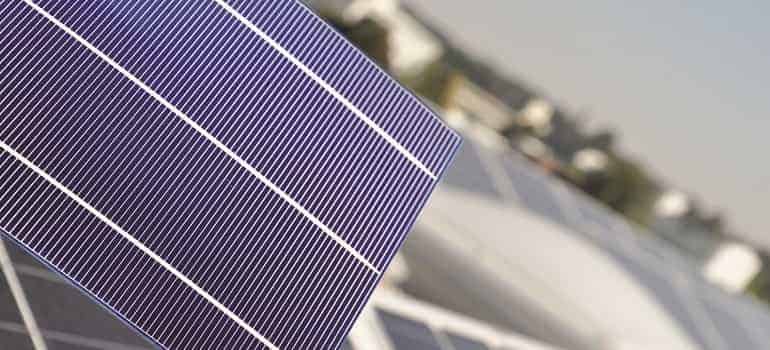
Solar-Tectic LLC announced that a patent application for a breakthrough CZTS thin film tandem solar cell technology has been granted by the US Patent and Trademark Office (USPTO).
The patent is the first ever for a CZTS thin film on crystalline silicon thin film (CSiTF) architecture, and covers all inorganic materials, including germanium, for the bottom layer in the tandem (or heterojunction) cell design.
Moreover, the entire process takes place at low temperature saving production costs and allowing for the use of flexible substrates such as plastic.
“CZTS” stands for Copper Zinc Tin Sulfide (or Selenide), and is a proven thin film photovoltaic material that is earth abundant and entirely non-toxic, in comparison to CIGS. The inventor is Ashok Chaudhari, Founding Manager of Solar-Tectic LLC, based in New York.
While CZTS as solar cell material has attracted great attention recently, it has suffered from inadequate efficiencies.
Typical CZTS efficiencies are in the range of only 8-12% (12.7% is the current record), so there must be improvement if it is successfully to compete with the 22.3% lab record of comparable materials such as CIGS (although actual non-lab CIGS solar cells available on the market have efficiencies much lower, usually between 16%-18%, and max 20%).
CIGS also suffers from two other bottlenecks: inadequate manufacturing methods and use of rare earth elements such indium and gallium which limit scalability in a fast growing, global market.
In order to become market competitive for commercialization, CZTS must be able to compete with low cost silicon wafer technology, especially the increasingly popular monocrystalline and heterojunction silicon (HJ) panels which have high efficiency, and emerging tandem wafer cells (e.g. perovskite/silicon wafer).
In general, all thi film solar cells must improve ideally to between 20% – 25% efficiencies. This is achievable in a CZTS tandem thin-film configuration, since the band gap of CZTS can easily be tuned in a wide range (1.5-2.1 eV) and its lattice parameter is almost identical to that of silicon, making it a perfectly suited material match for the top layer in silicon tandem cells.
Solar-Tectic LLC touts itself as only company in the world with an actual patent for this CZTS tandem cell with crystalline thin-films in both the top and bottom layers.
The company notes that there is no costly wafer for the bottom cell in this architecture because it is replaced by a much cheaper silicon (or germanium) thin-film. A cost effective ~25% efficient CZTS thin-film tandem solar cell in today’s market would revolutionize the solar energy industry by not only offering high efficiency cells but also much lower materials and fabrication costs.
This combination would dramatically reduce the balance of system (BoS) costs, thereby greatly reducing the overall costs for roof-top and utility scale solar (i.e. solar farms and power plants). In this scenario, it is likely that silicon wafer technology based on polycrystalline or monocrystalline silicon, which is 90% of today’s market, would become obsolete.
The patent is one of a “Tandem Series” of solar cell technologies that has been launched by Solar-Tectic recently, which includes a variety of different already proven semiconductor photovoltaic materials for the top layer on silicon (or germanium) bottom layer. Two other patents related to this CZTS technology have also been granted as well as US patent 10,062,792 titled “Method of Making a IV-VI/Silicon Thin-Film Tandem Solar Cell” for a tin-sulfide (SnS) solar cell.
The fabrication process methods used in these technologies are all conventional and similar to those currently being used in today’s thin-film solar cell industry as well as display industry (e.g. sputtering, CVD, etc).
Solar-Tectic LLC was recently selected for a grant from the “Strategic Partnership for Industrial Resurgence (SPIR)” program administered through the Thomas J. Watson School of Engineering and Applied Science at BinghamtonUniversity, New York.
SPIR was established by the State of New York to provide intensive high technology expertise, resources and facilities to revitalize and redirect the state’s industry. The grant money is being used to develop ST’s high efficiency tandem solar cell technology.
